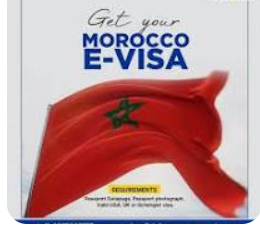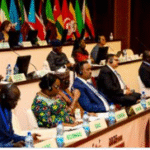By Mohamed Ghani
Rabat, Morocco – Morocco’s electronic visa (e-visa) system has marked a significant milestone, processing nearly half a million applications from 118 nationalities within just three years since its launch. This digital transformation has proven to be a pivotal driver for the country’s tourism sector and its broader international engagement, with over 94% of applications linked to travel and leisure.
Since its rollout, the e-visa system has processed close to 500,000 applications, with tourism-related requests accounting for a dominant 94.1%. Business visas made up the remaining 5.9%, underscoring the system’s dual role in facilitating both leisure travel and economic exchanges.
The third year of implementation, in particular, witnessed a robust surge, with 187,895 applications submitted. This sharp increase reflects both a “maturation of the system” and growing user confidence, according to official reports. The expansion of e-visa access to citizens of 118 nationalities has played a crucial role in this heightened demand and accessibility.

Beyond its impressive application numbers, the e-visa system is lauded for its efficiency. Standard applications are processed within 72 hours, while express requests can be turned around in just 24 hours. These rapid processing times have established the system as a critical asset for Morocco’s capacity to host major international events.
Speed as a Catalyst for Global Mobility
The benefits of the e-visa have been particularly evident during large-scale international gatherings. For instance, during the 2023 Annual Meetings of the IMF and World Bank in Marrakech, travelers from 109 nationalities utilized the system to enter the country. Similarly, the GITEX Africa Morocco forums in 2024 and 2025 saw participants from 118 and 117 nationalities respectively, leveraging the e-visa for seamless entry.
With Morocco poised to host major upcoming events such as the Africa Cup of Nations (CAN 2025) and co-host the 2030 FIFA World Cup with Spain and Portugal, the e-visa is set to remain a vital enabler of travel and logistics for thousands of international visitors.
Regional Impact and Future Prospects
At a regional level, the e-visa has also contributed significantly to strengthening intra-African mobility, a key objective for the Ministry of Foreign Affairs, African Cooperation, and Moroccans Living Abroad. A prime example is the evolving partnership between Morocco and Ghana, where the e-visa is already in use, with the ultimate goal of achieving full visa exemption between the two nations to further ease academic, business, and cultural exchanges.
Overall, the data unequivocally confirms the strategic relevance of the e-visa. It is widely recognized as both a modernization tool for consular services and a powerful mechanism for enhancing Morocco’s tourism appeal. The system is increasingly positioning Morocco as a welcoming and accessible destination for travelers, investors, and international institutions alike.
Key Features of the E-Visa:
- A “single-person authorization” allowing entry and a limited, uninterrupted stay in Morocco.
- Valid for a maximum of 180 days from the date of issue.
- Permits a single entry and a stay not exceeding 30 days.
- For families or groups, submitting applications together in a single file is encouraged for coordinated processing.









